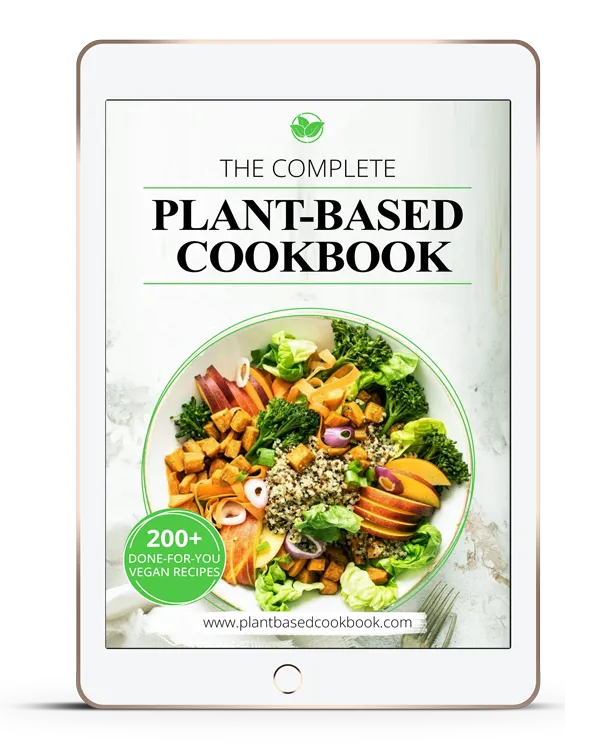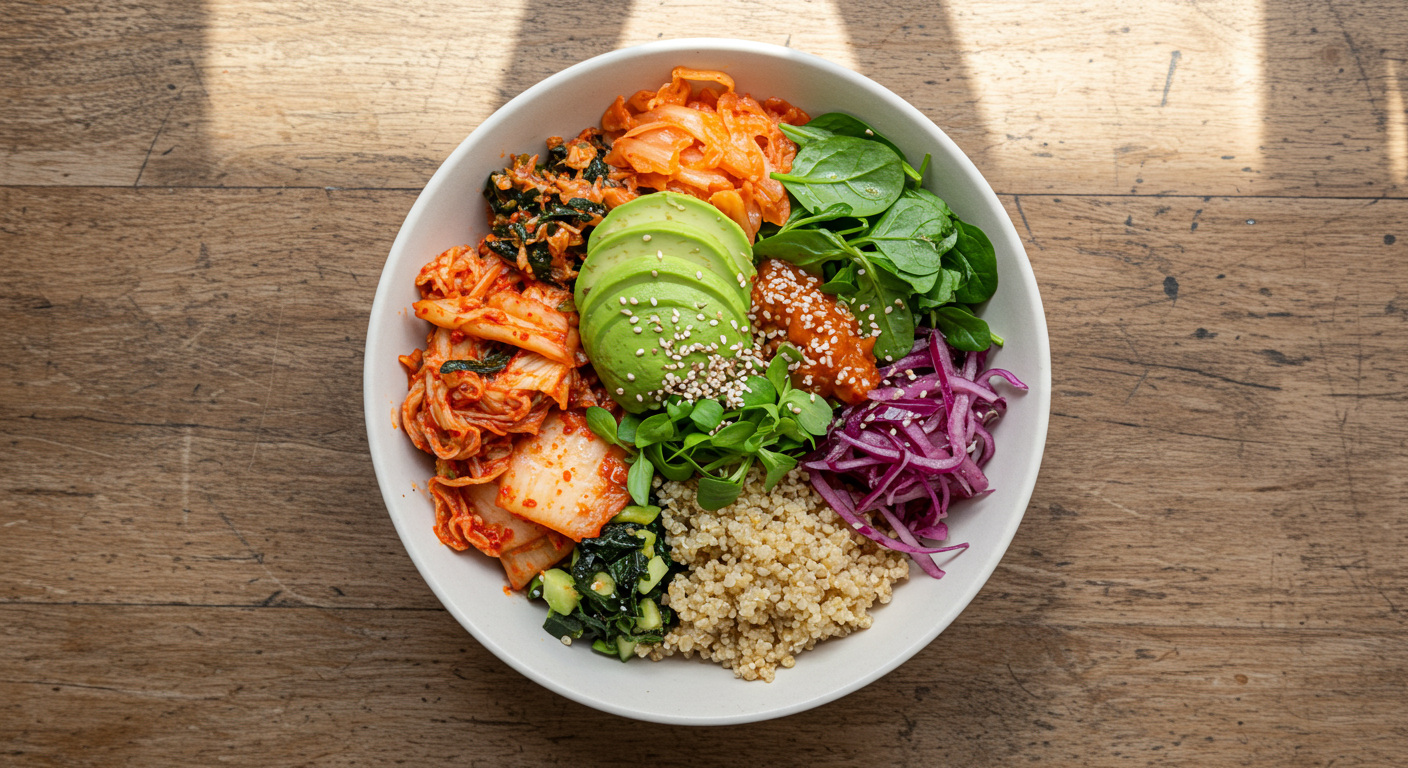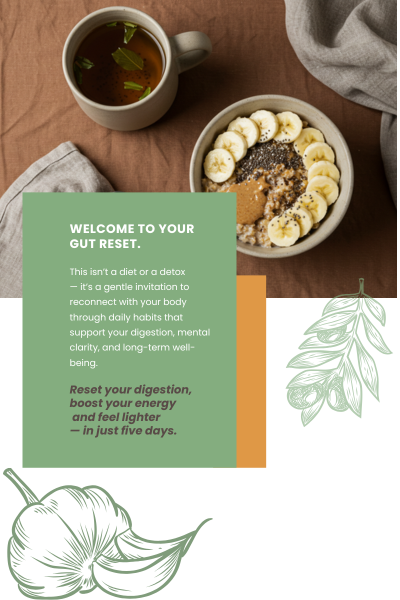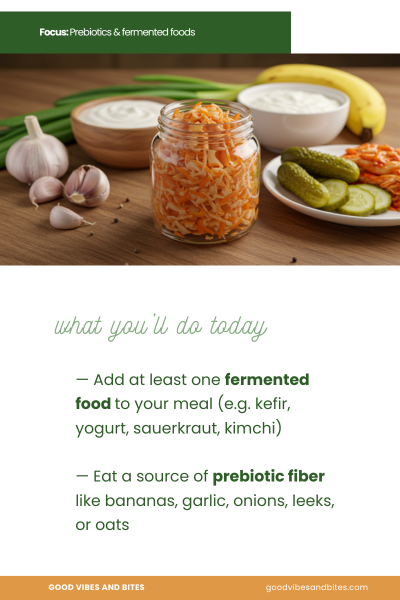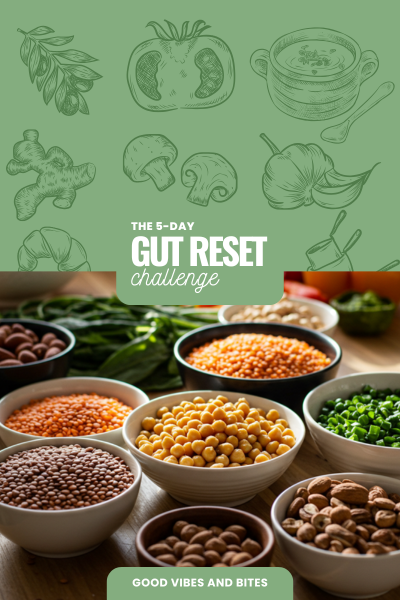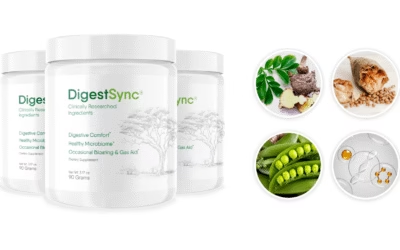Gut health isn’t just a trendy topic — it’s the foundation of your overall well-being. From your mood and energy to digestion and immunity, a healthy gut affects almost every part of your life. Whether you’ve struggled with bloating, fatigue, or unexplained skin issues, your gut may be the missing link. This guide offers everything you need to know about gut health: what it is, why it matters, what to eat, what to avoid, and how to truly nourish your digestive system for the long haul.
If you’re short on time and want to jump straight to the gut-friendly foods section, click here.
What exactly is gut health?
Gut health refers to the balance and function of the bacteria and microorganisms that live in your digestive tract, also known as the gut microbiome. A healthy gut has a diverse and balanced population of microbes, which help break down food, produce essential nutrients, and regulate your immune system. When this balance is disrupted — known as dysbiosis — it can lead to a wide range of health issues, from digestive discomfort to mental health disorders.
The human microbiome: more than just bacteria
Your gut is home to trillions of organisms, including bacteria, viruses, fungi, and archaea. These microbes are involved in:
- Digesting fiber and producing short-chain fatty acids (SCFAs)
- Creating vitamins like B12, K2, and folate
- Protecting against pathogens and harmful bacteria
- Training and supporting the immune system
The microbiome is so influential that some researchers call it a “forgotten organ.” Treating it with care is essential for long-term vitality.
Why gut health matters more than you think
- Immune system: Around 70% of your immune cells are located in your gut.
- Brain: The gut-brain axis links your digestive system with your nervous system, influencing mood and cognition.
- Hormones: Gut bacteria help regulate the production and metabolism of several hormones.
- Metabolism: A healthy gut supports stable blood sugar levels and efficient nutrient absorption.
Signs your gut might be out of balance
Do you feel sluggish, bloated, or foggy after meals? These can be signs that your gut is crying for help. Other common symptoms of dysbiosis include:
- Gas and bloating
- Constipation or diarrhea
- Food sensitivities
- Acne or eczema
- Cravings for sugar or carbs
- Brain fog or low mood
If these resonate with you, don’t worry — your gut can heal with the right approach.
Understanding leaky gut and inflammation
“Leaky gut” happens when the intestinal lining becomes more permeable, allowing toxins, microbes, and undigested food particles into the bloodstream. This can trigger inflammation and immune reactions. Gut-healing foods like bone broth, collagen, fermented veggies, and zinc-rich seeds help rebuild your gut lining. Reducing processed foods, chronic stress, and alcohol intake also play a major role in calming inflammation and restoring integrity to your gut barrier.

The power of chewing and mindful eating
Digestion starts in the mouth. Chewing thoroughly not only breaks food into smaller particles but also signals your body to begin releasing digestive enzymes. Practicing mindful eating — slowing down, avoiding distractions, and savoring each bite — can improve nutrient absorption and reduce symptoms like bloating and reflux. Make each meal a moment of connection with your body.
Movement and gut motility
Regular physical activity stimulates digestion and supports healthy bowel movements. Walking after meals, light yoga stretches, or even a few minutes of deep breathing can aid gut motility and reduce constipation. Movement also reduces stress, which positively influences the gut-brain connection. You don’t need intense workouts — just daily movement.
Sleep and circadian rhythms
Sleep plays a surprisingly important role in gut health. Disrupted sleep patterns can alter your microbiome and increase gut permeability. Aim for 7–9 hours of quality sleep each night and stick to a regular sleep-wake cycle. Going to bed and waking up at the same time — even on weekends — helps regulate digestion, hunger hormones, and immune balance.
Environmental toxins and your gut
Your microbiome is sensitive to more than just food. Toxins like pesticides, heavy metals, and plastics (such as BPA) can negatively impact gut flora. Choose organic when possible, avoid heating food in plastic containers, and filter your drinking water to reduce exposure. Reducing toxic burden is a powerful way to support your internal ecosystem.
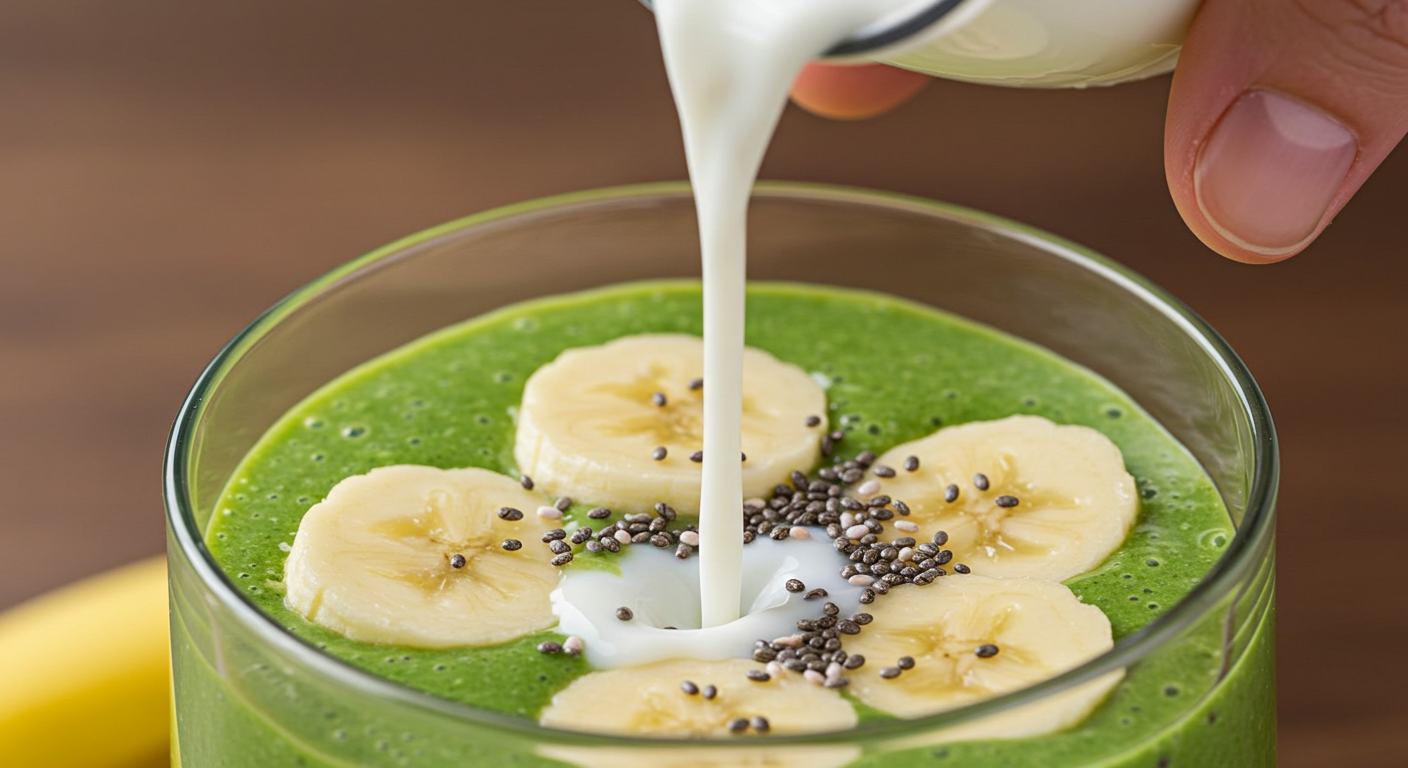
The ultimate gut health diet: foods that heal from the inside out
When it comes to healing your gut, food is medicine. The best gut health diet is one that focuses on fiber-rich whole foods, anti-inflammatory nutrients, and fermented items that feed and diversify your microbiome. Below is a deeper dive into the most powerful gut-healing foods to help you build meals that support digestion, balance, and energy — every single day.
1. Fermented foods: microbiome superstars
Fermented foods are packed with probiotics — beneficial bacteria that repopulate your gut and increase microbial diversity. Try to eat at least one of the following daily:
- Kimchi — spicy fermented cabbage with anti-inflammatory properties
- Sauerkraut — fermented cabbage rich in lactobacillus
- Kefir — fermented dairy or water-based drink, great in smoothies
- Miso — fermented soybean paste, perfect for soups and marinades
- Tempeh — fermented soybean cake, high in protein and probiotics
- Kombucha — fizzy fermented tea that supports digestion
- Plain yogurt — look for live cultures and no added sugars
2. Prebiotic foods: fuel for your gut bugs
Prebiotics are fibers that your body can’t digest — but your gut bacteria can. Feeding your microbiome with prebiotics helps beneficial bacteria thrive.
- Garlic
- Onions
- Leeks
- Asparagus
- Chicory root
- Jerusalem artichoke
- Green bananas
- Oats (especially steel-cut)
3. High-fiber fruits: gentle, natural detox
Fruits are an essential part of a gut health diet because they’re high in both soluble and insoluble fiber, antioxidants, and hydration. Best options include:
- Apples — contain pectin, a prebiotic fiber that feeds good bacteria
- Bananas — especially green or slightly underripe, rich in resistant starch
- Berries — blueberries, strawberries, and raspberries are full of polyphenols
- Kiwi — shown to aid digestion and reduce bloating
- Pears — high in water and fiber, gentle on the stomach
- Papaya — contains papain, a digestive enzyme that eases protein breakdown
- Pineapple — contains bromelain, anti-inflammatory and digestion-supportive
4. High-fiber vegetables: gut cleansing power
Vegetables provide the roughage your gut needs to stay regular and balanced. Aim for 2–4 servings of the following per day:
- Spinach and kale — high in fiber, magnesium, and anti-inflammatory compounds
- Broccoli and cauliflower — cruciferous veggies support detox and fiber intake
- Carrots — excellent source of insoluble fiber and beta-carotene
- Beets — support liver detox and provide gut-friendly nitrates
- Sweet potatoes — rich in resistant starch and gentle on digestion
- Zucchini — hydrating and easy to digest, especially when cooked
5. Whole grains and resistant starches
Whole grains provide prebiotic fibers and nutrients that help your gut flora flourish. Some also offer resistant starch, a unique fiber fermented by gut microbes.
- Quinoa — gluten-free seed rich in protein and fiber
- Oats — contain beta-glucan, a prebiotic compound
- Brown rice — more fibrous and nutrient-dense than white rice
- Lentils — full of prebiotic fibers and plant-based protein
- Chickpeas — support microbiome health and blood sugar control
- Cooked, then cooled potatoes — a source of resistant starch that feeds healthy bacteria
6. Gut-loving herbs and spices
Don’t underestimate the power of herbs. Many have antimicrobial and anti-inflammatory effects that benefit your digestive system.
- Ginger — soothes nausea, promotes motility, and fights inflammation
- Turmeric (with black pepper) — powerful anti-inflammatory and antioxidant
- Fennel — helps reduce bloating and gas
- Mint — calms intestinal spasms and aids digestion
- Cinnamon — supports blood sugar regulation and has antimicrobial effects
- Oregano — natural antibacterial properties
7. Healthy fats for gut lining repair
Fats are essential for gut health, especially those that reduce inflammation and help absorb fat-soluble vitamins.
- Avocados — high in monounsaturated fats and fiber
- Olive oil — rich in antioxidants and gut-protective compounds
- Nuts (especially almonds and walnuts) — fiber, polyphenols, and healthy fats
- Seeds (chia, flax, pumpkin) — support regularity and reduce inflammation
- Fatty fish (salmon, sardines, mackerel) — high in omega-3s
8. Hydration: the overlooked gut booster
Water is essential to keep things moving in your digestive tract. It helps fiber do its job and supports the mucosal lining of the intestines. Herbal teas are also a great addition:
- Ginger tea — warms the stomach and promotes motility
- Peppermint tea — relieves cramping and gas
- Chamomile tea — reduces stress and supports the gut-brain axis
- Licorice root tea — helps repair gut lining (avoid if hypertensive)
9. Bone broth and collagen
Bone broth is rich in collagen, glutamine, and minerals that help soothe and repair the gut lining. It’s especially useful if you suffer from leaky gut, chronic inflammation, or autoimmune conditions. Drink a warm cup daily or use it as a base for soups and stews.
10. Bonus gut-healing ingredients to try
- Aloe vera juice (unsweetened) — soothes the intestinal lining and reduces inflammation
- Apple cider vinegar (diluted) — supports stomach acid and digestion
- L-glutamine powder — amino acid that helps rebuild the gut lining
- Slippery elm and marshmallow root — traditional herbs that coat and protect the digestive tract
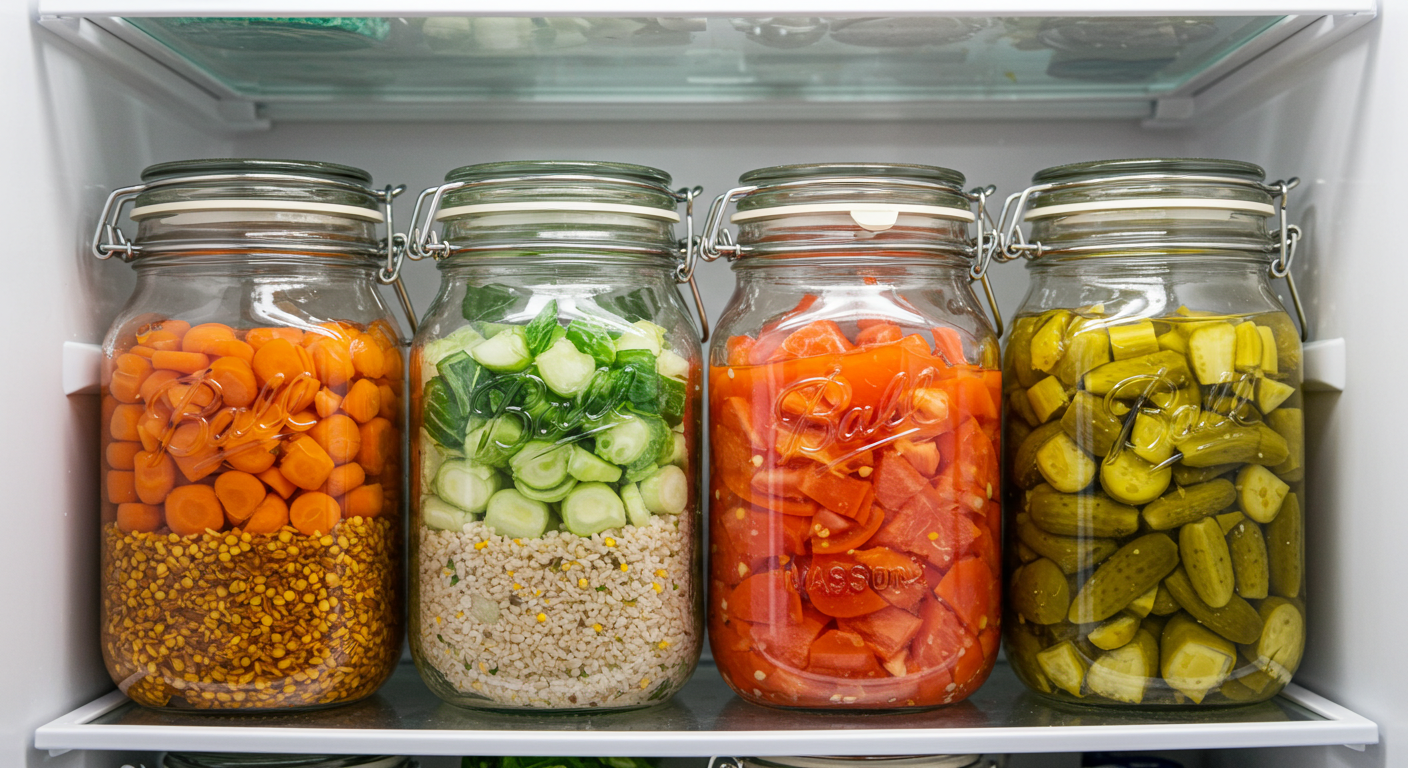
How to build a gut-friendly plate
| Meal Structure | Details |
|---|---|
| Half plate | Leafy greens, cruciferous veggies, carrots |
| Quarter plate | Whole grains, beans, or root vegetables |
| Quarter plate | Lean proteins like fish, eggs, or tofu |
| Extras | Kimchi, sauerkraut, avocado, flaxseed, herbs |
Meal planning for gut health
Gut-friendly eating doesn’t have to be complicated. Focus on these weekly goals:
- Eat at least 30 different plant-based foods weekly
- Include fermented foods 3–5x per week
- Drink herbal teas like ginger, peppermint, or fennel after meals
Putting it all together: sample gut health meal plan
Looking for a real-life example of what a gut-friendly day of eating looks like?
| Meal | What to Eat |
|---|---|
| Breakfast | Overnight oats with chia, blueberries, banana slices, and almond butter |
| Mid-morning | Green tea + a handful of walnuts |
| Lunch | Quinoa bowl with roasted sweet potatoes, kale, tempeh, avocado, and tahini dressing |
| Afternoon | Kombucha + a kiwi or kefir smoothie |
| Dinner | Grilled salmon with steamed broccoli, garlic-lemon lentils, and sauerkraut on the side |
| Evening | Chamomile tea + 1 tbsp of flaxseed in water |
Gut-harming foods to avoid
Some foods and habits directly harm the microbiome. Try to avoid these:
- Ultra-processed foods and artificial ingredients
- Excess added sugars and refined carbs
- Frequent use of NSAIDs and antibiotics without medical need
- Artificial sweeteners like sucralose and aspartame
- Excess alcohol and tobacco use
Simple swaps for everyday gut health
- Swap soda for sparkling water with lemon or mint
- Replace processed snacks with roasted chickpeas or sliced veggies and hummus
- Switch white bread for sprouted or sourdough varieties
- Trade sugary cereal for overnight oats or chia pudding
- Use olive oil instead of vegetable oil
- Enjoy herbal tea instead of dessert after dinner
These changes may seem small, but they add up to significant improvements in how you feel day to day.
Gut health diet ≠ restrictive diet
Contrary to what many think, eating for your gut doesn’t mean restriction. It’s about abundance — more plants, more colors, more variety. Focus on diversity: studies show that people who eat 30+ different plant-based foods per week have healthier, more diverse microbiomes. Every new fruit, spice, or veggie you try is a win for your gut.
Common mistakes when starting a gut health diet
Even with the best intentions, it’s easy to make mistakes when shifting to a gut-friendly way of eating. Avoid these common pitfalls to get the best results:
- Going too fast: Suddenly increasing fiber can lead to gas and bloating. Gradually build up your intake while drinking plenty of water.
- Overdoing fermented foods: They’re powerful — but too much at once can overwhelm your system. Start with small portions and observe how you feel.
- Relying on supplements alone: Probiotics and enzymes help, but they can’t replace real food. Use them as support, not a crutch.
- Skipping meals: Irregular eating patterns can throw off your digestion. A steady rhythm helps regulate gut motility.
- Not addressing stress: You can eat all the right foods and still feel bloated if you’re in constant fight-or-flight mode. Calm your nervous system daily.
FAQs about gut health and diet
Can I heal my gut without supplements? Yes — many people experience great results with diet and lifestyle changes alone. Supplements like DigestSync are great for faster achievements, but they’re not required.
What if I don’t tolerate fermented foods? Some people with histamine sensitivity react poorly to ferments. Try small doses, focus on prebiotic fibers, and consider low-histamine options like coconut yogurt or low-FODMAP meals.
How long does it take to see results? Many people notice improvements within a week (especially less bloating), but deeper healing can take 4–12 weeks depending on your gut’s condition.
Should I avoid gluten and dairy? It depends. If you suspect sensitivities, try eliminating them for 2–3 weeks and reintroduce mindfully. Not everyone needs to go gluten- or dairy-free permanently.
Reprogram your microbiome with expert guidance
If you’re looking for a science-backed, step-by-step plan to transform your microbiome, Super Gut by Dr. William Davis is a great read. It walks you through a 4-week protocol to reprogram your gut bacteria for better health, energy, and digestion.

Gut health and mental health: the emotional connection
Stress isn’t just in your head — it’s also in your gut. The gut-brain axis is a two-way highway of communication. Did you know that your gut produces over 90% of your serotonin? That’s the neurotransmitter responsible for feelings of well-being and happiness. When your gut is imbalanced, it can lead to anxiety, irritability, and even depression. Supporting your microbiome is one of the most overlooked — and effective — ways to improve emotional balance.
Try pairing gut-friendly meals with mental wellness habits like:
- Gratitude journaling
- Daily sunlight exposure
- Nature walks
- Guided meditation
- Breathwork or EFT tapping
Curious about how your gut and emotions are connected? Explore our in-depth post on gut health and mental well-being to learn more.
Morning routines for a happy gut
Start your day with this gut-friendly ritual:
- Eat a high-fiber breakfast with natural fats and protein.Habits that support gut health
- Drink warm lemon water within 15 minutes of waking.
- Spend 5–10 minutes in movement: yoga, walking, or stretching.
- Practice 3 rounds of box breathing (inhale–hold–exhale–hold, 4 seconds each).
Want to dive deeper into energizing your mornings for better digestion? Don’t miss our full guide on morning routines that support healthy digestion.
Travel tips for maintaining gut health
Travel can disrupt your routine — but it doesn’t have to wreck your gut. A few simple habits go a long way:
- Pack your own snacks (e.g., roasted chickpeas, fruit, or flax crackers)
- Take a shelf-stable probiotic supplement
- Drink extra water, especially on flights
- Walk or stretch during layovers or hotel stays
- Eat simply — focus on cooked vegetables and light proteins
Supplements that may help
While real food is the best place to start, certain supplements can help restore and support gut health. A well-formulated probiotic can assist in replenishing good bacteria. One excellent option is the Physician’s Choice 60 Billion Probiotic, which includes prebiotics and a delayed-release capsule for targeted delivery. Other helpful supplements include digestive enzymes, L-glutamine, and magnesium citrate.
Ready for a reset? Join the 5-Day Gut Reset Challenge (free!)
If you’re feeling overwhelmed or unsure where to start, the 5-Day Gut Reset Challenge is your perfect entry point. This free program helps you reset your digestion with simple steps and small but powerful habit shifts. You’ll learn how to reduce bloating, balance your microbiome, and feel more energized — in just five days.
No extra effort required, no complicated meals. Just real strategies and real results. Join now and start your reset today.
→ Click here to get it for free
Final thoughts: your gut is your second brain — take care of it
Gut health isn’t about being perfect. It’s about daily choices that add up. The more you tune into your body, the more clearly you’ll understand what helps or harms it. Be patient. Be consistent. And remember — every meal is a chance to nourish your gut and, by extension, your life.
Want to take the next step? Read our post on why gut health is so important and continue deepening your knowledge and results.


